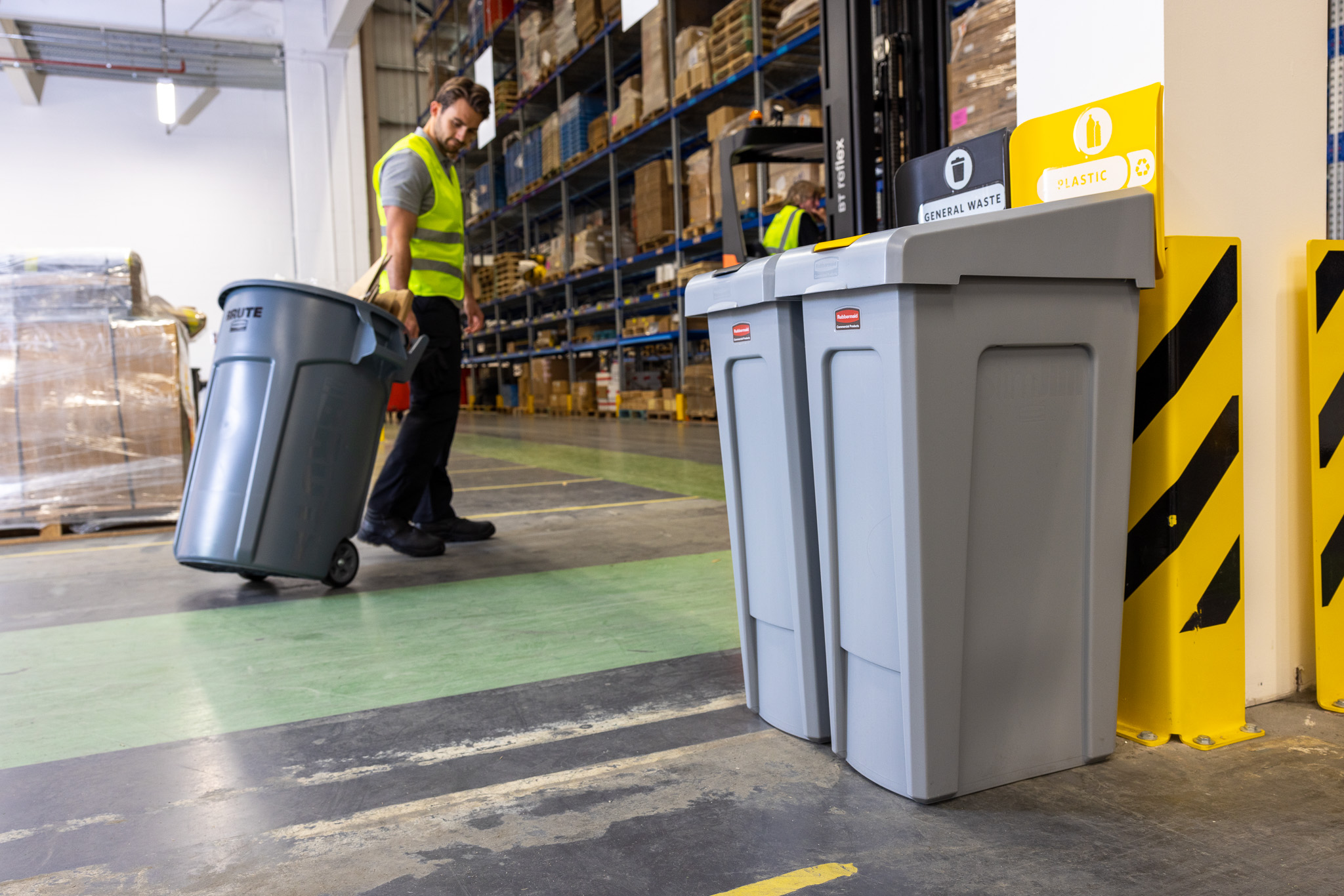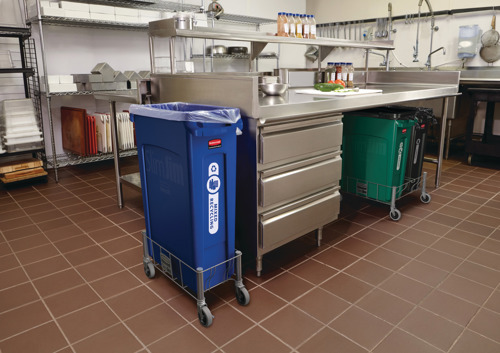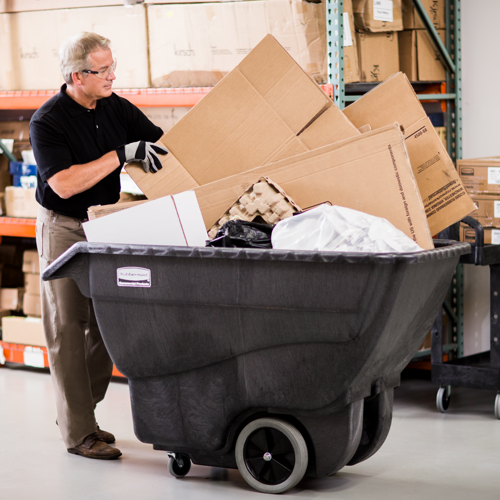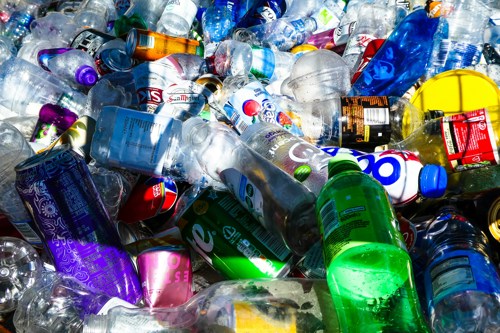
In March 2025, Simpler Recycling legislation was rolled out in England. Since then, businesses across all sectors have been required to introduce multi-stream recycling to comply with the new rules.
At Rubbermaid Commercial Products (RCP), we understand that legislation changes can seem complicated and take a lot of time (and money) to implement in your business. With Simpler Recycling just the beginning of a series of legislative changes on the horizon, we’re taking a look at what’s coming up, so you can get ahead of the curve and future-proof your waste management strategy.
Read on to find out:
View our Recycling Legislation roadmap here.
Simpler Recycling
What changes did the 2025 Simpler Recycling legislation make?
As of 31st March 2025, all businesses in England with 10 or more full-time employees have been required to separate the following waste streams on site, prior to collection from a waste contractor:
This means having clearly labelled multi-stream bins available internally for staff, customers and visitors so separated waste can be presented for collection.
When will Simpler Recycling apply to smaller businesses?
From March 2027, Simpler Recycling legislation will apply to all businesses regardless of size, even ‘micro-firms’ with fewer than 10 employees. Learn more about how you can create a compliant Simpler Recycling strategy in our complete guide.
Will there be any other changes to Simpler Recycling requirements?
At the same time as the change for smaller businesses, there will also be an increase in what needs to be recycled. From March 31st 2027, you will need to separate plastic film, including plastic packaging and bags, from the other waste streams. The types of plastic include mono-polyethylene (mono-PE), mono-polypropylene (mono-PP), and mixed polyolefins.

Digital Waste Tracking
What is digital waste tracking and which businesses need to do it?
Waste tracking refers to how waste management businesses keep records of the material they dispose of. This new mandatory Digital Waste Tracking system requires these businesses to log all movement and disposal of waste in an online platform. The government hopes that this more transparent approach to waste tracking will crack down on waste crime like fly tipping or illegal exports. A centralised system should also cut the amount of time and resources that individual businesses spend on waste tracking.
When will digital waste tracking be introduced?
Digital waste tracking will be required from October 2026 (pushed back from April). This will impact all sites with a permit or license to receive waste, before expanding to include all regulated waste operators in 2027.

Deposit Return Scheme
How will the Deposit Return Scheme work?
The new Deposit Return Scheme will introduce a redeemable deposit on single-use drinks containers like cans and plastic bottles. Consumers will then get the cost of the deposit back when they return the empty container to a collection point. In Wales, the deposit return scheme will also apply to glass containers.
The scheme aims to increase recycling rates to over 90%, reduce litter and support a circular economy.
When will the Deposit Return Scheme start?
From October 2027, UK businesses who produce or sell bottled or canned drinks will need to register with the Deposit Management Organisation, a new not-for-profit body led by industry stakeholders. These businesses will need to apply deposits to the drinks they sell, clearly label the drinks to say they’re part of the scheme, and report on the number of containers that are returned.

UK Carbon Emissions Trading Scheme (ETS) expansion
What is the UK ETS?
The UK Carbon Emissions Trading Scheme (ETS) was introduced in 2021 and sets a cap on the volume of carbon emissions that energy-intensive industries are allowed to produce. Individual businesses then have the option to buy extra emission allowance from other businesses in that sector, so the total cap stays the same.
Currently, the ETS only applies to a handful of sectors, such as aviation, but from 2028 the waste incineration and energy-from-waste industries will be included in the Scheme.
How will the 2028 ETS expansion impact businesses?
The government consultation on the legislation change says it is ‘very likely’ that the cost of carbon allowances will be passed on to the customers who send their waste to incinerators*. This means that the cost of incinerating non-recyclable waste may increase, which will encourage businesses to recycle as much waste as possible.
As we get more information on this upcoming legislation, we’ll continue to cut through the confusion and keep you updated on what it means for your business. Discover how much your business could save with better waste management using our Recycling Audit Tool, and find the best bins for your facility here.
View our Recycling Legislation roadmap here.
*Source: https://assets.publishing.service.gov.uk/media/6669a60c9d27ae501186db79/ukets-scope-expansion-consultation-waste.pdf
Share on Social Media